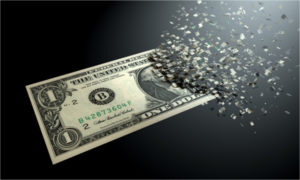
You’re living in a crazy world where a lot of the frustration you and I feel is absolutely avoidable. Where’s leadership’s common sense? They’re making calls that impact your life in a way that seems separate from theirs. Why, for example, is the nation’s Capitol building surrounded by a moat-like steel fence and armored guards? From whom are they protecting themselves?
You’re witnessing reckless spending and the destruction of the dollar. Is there any wonder today’s headlines read like an inflationary who’s who? “Lumber Prices Notch Records on Remodeling Boom, Stock Futures Gain, Natural Gas Rallies, In Texas Winter Storm Forces Rolling Power Outages. Cuomo Slips in Polls over New York Nursing Home Deaths.” That’s just to name a few.
In his WSJ piece, “What Inflation Debates Miss: Inflation,” Joseph Sternberg writes:
Meanwhile, inflation already is here.
“Inflation” in the academic and policy jargon has come to mean a specific event: a rapid run-up in consumer prices. This is the great horror remembered from the stagflation of the 1970s and the wheelbarrows full of Papiermarks in Weimar Germany in the 1920s. By this standard, the great mystery is that recent monetary expansions have not triggered consumer-price inflation. But this crimped definition of the problem blinds us to all the other inflationary pressures afoot.
Insight emerges from a browse through Adam Fergusson’s 1975 history of Germany’s hyperinflation, “When Money Dies.” The run-up in consumer prices was only part of the way the monetary excesses of the early 1920s destroyed German society. Other evils abounded.
Middle-class investors found the value of and income from their capital wrecked by a phenomenal bid-up in prices for financial assets, whose nominal gains masked inflation-adjusted plunges. Financial disorder stoked growing unease bordering on panic on the part of a bourgeoisie that had relied on its capital investments to fuel German economic growth and also to fund its consumption.
A consequence of chaotic financial markets was a new boom in speculation. The economic miseries of the era were not uniformly distributed, and the divergence between new classes of haves and have-nots stoked political and personal resentments alongside rampant corruption. Does any of this sound familiar?
Action Line: Get your financial house in order today, because it will be too late when government finally admits to seeing inflation tomorrow.



